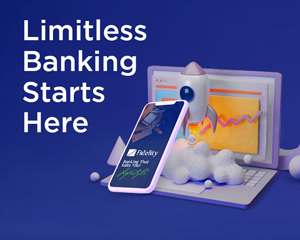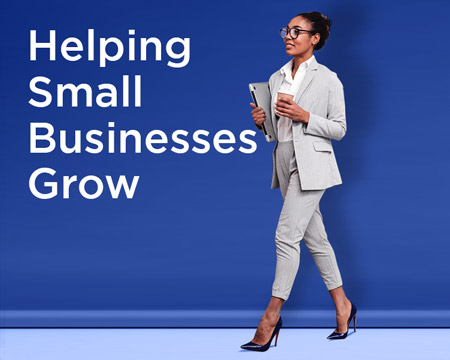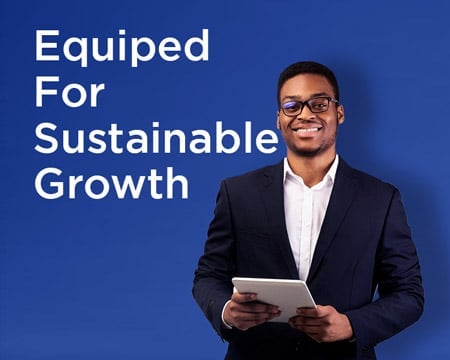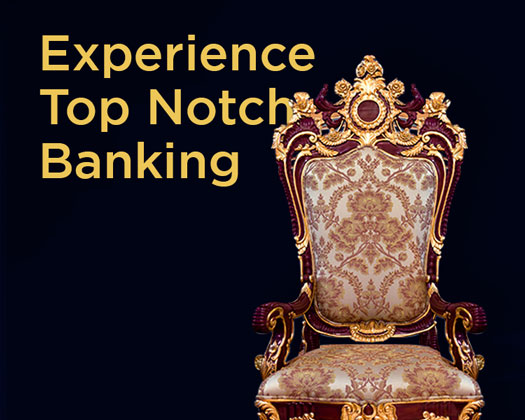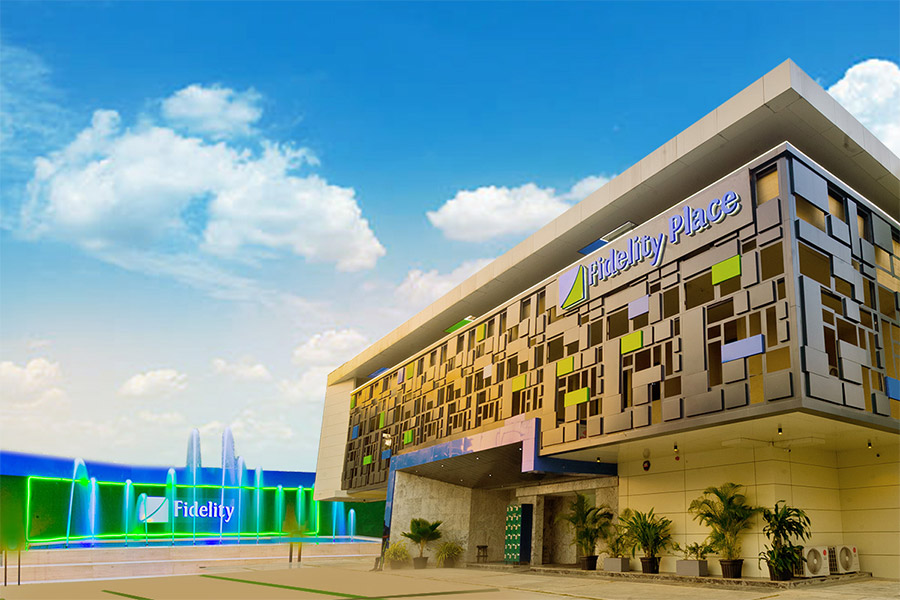The Fidelity SME Forum is a weekly radio programme organized by Fidelity Bank Plc to educate, inform, advise and inspire budding entrepreneurs in Nigeria with knowledge and expertise that will enable them build sustainable and successful businesses. The interactive radio programme features subject matter experts and model entrepreneurs as guests on a weekly basis to share their insight and unique success stories. In this interview, Managing Director/Chief Executive Officer, Fidelity Bank Plc., Nnamdi Okonkwo gives valuable insights into Fidelity Bank’s Unique Approach to Supporting SMEs in Nigeria. Excerpts.
Question 1: To set the context for this interview, through your distinguished banking career spanning decades, you are currently heading one of the leading banks in Nigeria. Where is Fidelity Bank today? What is your plan for SMEs in 2016?
Answer: Thank you very much, I would like to say happy New Year to our listeners and the numerous customers – three million of them that are listening this morning. First of all, I would like to say that Fidelity Bank is 27 years old. In all of those years, we had two CEOs (Chief Executive Officers) before me. So, I am the third CEO of Fidelity Bank. And just to go back to history, the bank started as a merchant bank. But, we have since transformed into a full scale commercial bank acquiring two other banks in the process to give birth to the enlarged Fidelity Bank. We have an asset base of N1.2 trillion, which approximates about $6 billion.
We currently have three million customers and 223 branches nationwide. Fidelity Bank is regarded as one of the most stable banks in terms of management and Capital Adequacy Ratio.
Interestingly, a lot of people are of the view that banking SMEs is a risky business. Of course, banks are in business to take risks, but we have taken a different approach to supporting SMEs. We set up the Managed SME Division to provide one-on-one advisory, access to market for our customers, and to guide aspiring entrepreneurs that are just clueless about how to run a business. Our goal is to build requisite capacity in order to create the Aliko Dangotes’ of tomorrow.
Quite a number of established entrepreneurs have been on this programme to share their unique experiences of doing business in Nigeria. Now, we are embarking on a number of activities to make sure that aspiring SMEs get a handhold from people who are highly experienced in this area. In 2016, we are going to keep on doing what we have always done. We are going to push the boundaries of innovation as we intensify support for small businesses in Nigeria. Recall, we have a national conference on SMEs. What do we do at this conference? First of all, apart from knowledge sharing, we bring individuals that started businesses from nothing, and rose to the pinnacle of success.
These unique individuals share their experience, inspire young people and upcoming SMEs for future purpose. If you listen to the life stories of some of these people, how many failures they had, before they came up, it actually helps people to begin to put the SME business in proper perspective. We extended this programme to the regions. We have had one in the South-west and South-east region respectively. On the 28 of January, we will be in Kano to hold another SME conference.
Interestingly, we are changing the slant of the national conference. We will focus on the creative industry. As a bank, we believe that narrowing down to specific industry verticals, will provide better perspectives in terms of creating a closer knit group of people who share common aspirations and challenges.
Question 2: In Naira and Kobo what is the size of the Bank’s SME Business Portfolio?
Answer: Okay when you see the advert that says: ‘Supporting 500,000 SMEs in a year – it’s a tough job, but somebody has to do it’. That somebody is Fidelity. Between now and when we did the advert, SMEs customer numbers have grown to about 600,000. How do you measure this? It is by the number of accounts, by the size of deposits. We currently have about N120 billion in SME deposits since we started focusing on SMEs. And in terms of loans, we have extended loans of N60 billion to the SMEs segment.
Question 3: Fantastic. So you put your money where your mouth is and it is beyond just getting SMEs as customers. You are investing in giving them loans which is fabulous. A lot of listeners have heard about the CBN SME facilities, and clearly Fidelity is taking advantage of the fund to support SMEs. Can you tell the listeners how they can engage Fidelity to tap into this opportunity?
Question 3: Fantastic. So you put your money where your mouth is and it is beyond just getting SMEs as customers. You are investing in giving them loans which is fabulous. A lot of listeners have heard about the CBN SME facilities, and clearly Fidelity is taking advantage of the fund to support SMEs. Can you tell the listeners how they can engage Fidelity to tap into this opportunity?
Answer: Quite a number of Nigerians are aware that CBN, Fidelity Bank, Bank of Industry (BoI) all support SMEs. But, not a lot of people actually bother to get detailed information. Only recently, an old school mate of mine sent me a message, telling me about his younger sister who is an SME somewhere in Port Harcourt. He said the sister in question would like to borrow. My Friend said he was well aware that Fidelity supports SMEs, but wanted to know how to go about it? I told him, ‘better ask her to call me so that I can channel her appropriately’.
She called and she said I am into fashion business, and I want to borrow. I asked, do you bank with us. She said yes I bank with you. So just give me the account name so that I can take a look at it. It turns out that it is savings account. It turned out that she just runs a savings account. So, there is really no separation between the personal account and the business account, typical of SMEs. She does not also realize that you need to have some kind of business records and get organized to prepare yourself for borrowing. Despite publicity and enlightenment campaigns by Central Bank and other financial institutions, a lot of people do not even seem to understand how the SMEs fund works.
The Central Bank of Nigeria (CBN) set up a N220 billion fund to support SMEs. And it is pretty simple, why did they do this? They wanted to provide an avenue for SMEs to borrow at 9 percent maximum rate, and it even has a stretched tenure up to 5 years. But, you would also realize that women by culture are excluded from financial access. In view of this, CBN set aside 60 percent of this fund for women entrepreneurs. Those who understand it have taken advantage of this provision. We are currently one of the top two leading Deposit Money Banks (DMBs) in the disbursement of the CBN MSME Development Fund.
We have accessed N1.3 billion of this fund. We have given out the CBN MSME loans to about 70 of our customers. When we had the first disbursement, we made a song and dance of it to say Fidelity disburses the first batch of CBN SMEs loans to three customers. You need to hear the inspiring stories of these customers.
Just before Christmas, one of them has cycled out the loan, repaid, and returned the money to the CBN. That is the success story that stakeholders in the financial services industry want to hear. This is not one of those schemes where people think it is a national cake. This is why they have to passed them through institutions that have the framework like the Central Bank and commercial banks like Fidelity Bank. So, I am just advising customers, these loans are available. But then, you have to prepare your business to be able to access it. You don’t just wake up and walk into a bank and say CBN is giving loans, I want my own. That is actually why CBN is not channeling this through some social welfare programme.
And the information is actually very simple, and for those who are not sure of how to get it, if you don’t want to go to CBN website, you go to Fidelity Bank website. And it doesn’t have to be Fidelity, just to be honest. Wherever you bank, just ask them. But not all banks are playing with the same intensity like Fidelity and one or two other banks are playing, but the information is out there and it is real.
Question 4: That is phenomenal and very encouraging because not only are you committed to working through these issues with your customers, you are continually holding their hands, and I like your emphasis on women, 60% of the funding is committed to women and I am beginning to wonder and I think the message you are giving out to SMEs is that they have to have a track record and that they have to be committed and they have to show that they can repay. The confidence that you have is that they can repay and that they can get the first loan, and hopefully a second and the third loans based on their success so thank you very much.
Just to push forward, the new-year poses several challenges for SMEs and the SMEs listening and all of them are worried about the currency issues, they are worried about inflation, they are worried about a lot of issues, how can they adapt to tackle these issues in 2016 and how can the banks help them and from a financial services perspective to be strong and to excel and to flourish in 2016?
Answer: Actually, it was a tough year last year, it is going to be even tougher. Let’s face it, if price of oil drops from $110 down to the $30s today with prospect that it is going to drop further, you just realize that what is happening today is a result of what we did to ourselves as a country in the past. The oil economy just made a lot of people lazy, and what you see is that they started importing every single thing even those things that we can produce here. Why for instance should we be importing frozen chicken, some smuggled through the borders, some through the ports? Some of these are preserved with dangerous chemicals-formaldehyde. How long does it take from the time you buy a day old chick to feeding them to mature to broilers for chicken or layers for eggs? But everybody would rather spend on importation because we just have the foreign exchange to play around with.
Today the reality for SMEs is going to be tough. If you are an SME or you are dependent on imports, conventional wisdom is that you begin to look inwards. Now, how do businesses succeed? I think the number one thing is that you have to first identify a need and then provide the service that fills the need. The huge population of Nigeria is a positive for us, there will always be consumption. If you cast your mind back to around 1984, when we had a serious economic downturn, in the days of essential commodities when people used to queue behind trucks to get milk, soap and other essentials, what happened? A lot of people started producing Soya milk, others started making soaps locally, yet others started small scale poultries and families could address their food and basic needs and still had some money for things like school fees. Somebody produces soya milk in Benue, transports it to Lagos and we began to have substitutes for imported milk. These are just few examples. Rather than depending on imported cornflakes at the time, even though we have companies like Nasco in Jos, we began to consume local ones. What I am trying to say is that this country is blessed abundantly especially agriculture wise and mineral resources. Look, if you take oil palm plantation, there are improved varieties today that could start producing in two and half years. I am not advertising for anybody, but engage with certain companies worked with a certain company like Presco. If you go to Benin, they produce everything about the oil Palm and nothing is a waste – from the palm frond, palm oil, the palm kernel to the shell. From biogas, this company produces 7.5 megawatts of electricity. They supply the entire village electricity free of charge, yet they flare gas that can produce another 2.5 megawatt. This is local production.
Imagine therefore, if you have out growers who also produce oil palm and supply to this big corporate, they will be making money better than what they will do from just buying and selling imported products. I just gave these examples to say people must go back to basics, there are opportunities here let us identify them and use them and not continue to depend on imports.
Question 5: Fantastic. So look outward, look inward and tap into opportunities that exist in every single sector. Now, we are getting quite a few tweets from your customers and potential customers of Fidelity Bank who want to know how they can take advantage of the opportunities you have for the SMEs. One tweet wants to know if you also give loans to new startups and at what rate?
Answer: Of course, we give loans to new startups if not nobody is going to start them. But, new startups have to package themselves rightly. We created a division called Managed SMEs to help them position themselves to access this facility. If you go to our offices, especially at Adeyemo Alakija in Victoria Island, they would go through what you have and help you put your business in readiness, give you tips on how you can prepare yourselves to borrow. So, it is not like a startup walks in and says I want ten million or one million naira and you give him. You have to hand-hold and teach him how to prepare his business. I gave an example earlier of a startup that wants to borrow.
We teach them what to do. Like the young lady I talked about, I said to her, you first of all have to start keeping proper records. Let me even see your business plan, where do you want to go with this business. We help them and when they are mature to the borrowing stage then we can make finance available.
Question 6: Okay, that’s very good. Another tweet says with the CBN capital controls and the issues of card usage overseas how is Fidelity Bank helping its customers especially those in the Diaspora access their funds overseas?
Answer: Well, we sympathize with all of us for what has happened. The CBN simply does not produce dollars. Nigeria earns dollars and has to have foreign reserve. If you deplete all the reserves, you don’t exist as a country. The capital controls are actually necessary, however, I don’t just want to talk about Fidelity. What the industry has done is to regulate behavior to say, let us channel the scarce foreign exchange we have to essentials, to real sector that will add value to the economy. Okay if your child is in school abroad you are not going to say come home. If you listen to what the President said, we can’t abandon our children who are out there, so the Central Bank is actually looking at ways of helping to make sure that those kids don’t get stranded, and for us at Fidelity, we also have to comply with what the regulation says, but in doing that, let us really think about it, if they say you cannot withdraw more than three hundred dollars cash overseas, what do you need so much cash for?
In those days when the dollar was in abundance, people could use their ATM cards to pay for as much as a hundred and fifty thousand dollars but you know we began to see abuses. Somebody goes abroad, uses his card to purchase cars, and ships them here, some of them don’t even pay duties and they try to beat that. So we have to begin to actually put these things into perspective. Why would somebody travel to China and use multiple ATM cards to game the system? So the controls are just to make sure that we conserve foreign exchange for the good of all of us. Now for Fidelity, what we have done is to continue to monitor, as times change. Recently, we announced a reduction on how much you can use.
Some institutions based on what they have also seen, have stopped allowing their cards to be used in certain parts of the world where they have seen abuses. I think the overriding principle is the national interest and welfare of Nigeria so we will continue to assist our customers but still within the regulatory limit.
Question 7: We have another question here that talks about financial principles for an SME. If you are an SME and you are trying to access a loan, what are some of the financial principles that you as a banker will look out for? And another question says that I have been operating for six months being on franchise and I want to expand, how can Fidelity help me? So I think a lot questions are coming on loans, expansion and tapping on the great resources that Fidelity has to offer.
Answer: First and foremost, for you to start a business you have to ask yourself questions. What is the attraction, why am I going into this business, am I keeping up with the Joneses? There are risks associated with businesses. So in terms of finance, you ask yourself how much do I have, there must be something called owners’ equity in a business. Do you even have something to start with? You must save up, you must prepare, then you start small, you must understand the risks in any venture you are going into on financial perspective if not you lose the little you have.
The other question is from someone who has been operating under another company and now wants to borrow because he wants to expand. Excellent. How to go about it is to show the records of what you have done in the last six months to one year or even a longer track record, to show what the objective of the business is, to show a clear understanding of the business, to provide enough information. The banker-Customer relationship is like Doctor-Patient relationship. If you show your banker that you have experience in the business or what you intend to achieve, the bank can then provide financial advisory, we can then guide you, we can then tell you for instance, do you even realize that in this line of business the risk is higher, there is regulatory risk. Let us say you are into pharmaceuticals, do you realize that there are standards? We tell them about NAFDAC requirements and something like that.
That is where a bank like Fidelity with a Managed SME unit comes in. Now, you cannot prescribe the same medication for every ailment. So, for this particular customer for instance we need to get a deeper insight into his business to give the right advice. If for instance I walk into a doctor’s office and I am running a high temperature, he cannot just start treating malaria, he has to conduct tests. This is the reason why we have created an avenue for interaction with customers. This customer can walk into Fidelity Bank and ask for ‘Managed SME’. They will guide him or her from the point of view of benefit of information that he has provided.
Question 8: As you think about the future, this question says that he likes what Fidelity, as a forward thinking bank is doing for SMEs, and asks how you intend to sustain it? I know you are planning an E-commerce platform, you are doing a lot around there, SME cluster programme. Just round up with your future plans.
Answer: Thank you very much, actually, if you remember, I said one of the key strong points of Fidelity is stability in management. I did not start the SME business in Fidelity. My predecessor did and he did a good job of laying the foundation. If I have become the CEO as the third CEO of the bank, if I had come in and I have a different mind-set, then I would probably have jettisoned SMEs, but that is not the case. By the time my tenure is up and I leave Fidelity, we would have built the kind of institution that whoever succeeds me will also continue with what we are doing and taking it to a higher level. And this is very important.
Up to the board level, we are passionate about SMEs. So if for instance Fidelity is interviewing to hire a new CEO and he or she doesn’t believe in SMEs, the chances are that he or she will not get that job. That is how serious Fidelity takes corporate strategic focus and Corporate Governance because our our mission says that we want to make financial service easy and accessible to our customers. So if somebody has a different agenda that has no congruence to the institutional dream, then we have issues. So based on that principle alone, I am sure we will continue. You talked about E-commerce site, there are E-commerce sites all over the place, but you see a bank with three million customers, what does E-commerce do, it gives access to the market, it provides opportunities to project your products as well as see those of others.
But if you have three million customers and six hundred thousand SMEs, and some of these SMEs wouldn’t have gone on any E-commerce website anyway. So providing market access exposes them to countless number of counterparties globally. That’s the power of e-commerce especially now that life styles have changed significantly and millions of people would rather shop online. So our customers will suddenly discover they are raking in more revenues at reduced cost of sales. All these will ensure business sustainability.

